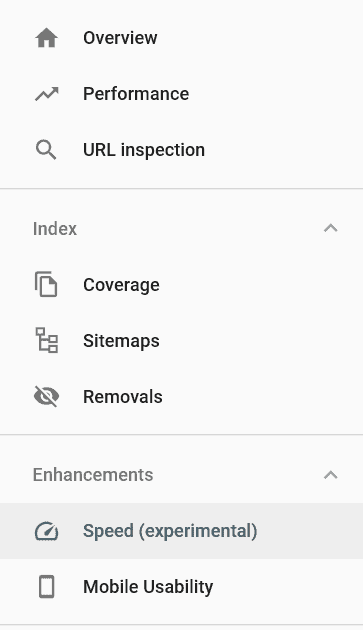
Email Marketing Insights in 2025 from Neil Patel
Neil Patel recently shared powerful tips on email marketing success—think cleaner lists, smarter personalization, and value-packed content. His key message? Email isn’t dead; it’s evolving.

If your website is slow to load, you’re losing out on sales and increasing the chances of your customers turning to your competitors.
A one-second delay in loading time can result in:
A delay of a few seconds can have a significant impact on your ability to generate new leads and sales.
Google has reinforced the significance of speed by announcing a new badging system. Websites that are slow to load will be named and shamed to warn internet users before they click in search results.
Can you imagine having a “slow” badge slapped on your service pages and your traffic falling off a cliff?
No business wants their website to be labelled with a badge that warns off potential customers.
Here’s everything you need to know about the speed badge update and what you can do to prepare.
Google has announced three ways they will badge the speed of websites on Chrome.
First, when a user is waiting for a page to load, the loading screen will inform users that the website they are waiting to access is usually slow to load.
Second, mobile users will see a green loading bar appear at the top of the screen to indicate a fast loading site. Presumably, slow sites will be badged with a red loading bar to indicate slow site speed.
Finally and perhaps most worrying for business owners with slow websites, Google will provide a “context-menu” for links. This is highly likely to be a badge in the search engine results page (SERP) to indicate site speed to users before they click on a search result.
Being labeled with a slow speed badge could damage your reputation, reduce your ranking in search results, and discourage potential customers from ever visiting your website.
On the flip side, being rewarded with a fast speed badge could attract more customers to your website, boost your search ranking, and improve your reputation.
Backlinko recently conducted a huge analysis of over one million Google search engine results pages. Their analysis revealed that page speed is a crucial factor in achieving a higher ranking in search results:
Aside from the badge of shame, loss of traffic, and drop in search ranking, the slower your website is, the more likely your potential customers will abandon your site and seek out a competitor.
Instead of waiting for Google’s speed badge system to come into full effect, you should proactively take steps to improve your site speed and position your business to take advantage of the change.
You can evaluate the speed of your website by accessing the speed report located in the left-hand menu of the Google Search Console:

The speed report analyses real-world data to provide a speed status of Slow, Moderate, or Fast for both desktop and mobile. If you find that the report returns “No data available,” it means your website has only recently been added to the Search Console, or you don’t have sufficient data to provide accurate reporting.
If that’s the case, you can use PageSpeed Insights to run a live test of your URL.
The PageSpeed Insights report will provide an overall score for your site (out of 100) and will show detailed data on performance. It will also provide some helpful suggestions as to how to improve your site score.
A one-off test can help you to identify any issues that are hindering your website speed. But to see the full picture, you may want to test your site multiple times under different conditions.
For example, location, time of day, and the number of people using your website at any given time can all impact site speed.
You’ll also want to know how you stack up against your competition. Fortunately, Think with Google allows you to do this quickly and easily.
High-quality images can increase the aesthetic appeal of your website, but you need to make sure they are compressed for the web and in the right file format.
CSS sprites can help you to create templates for the images that appear multiple times on your site. Instead of sending out multiple HTTP requests and slowing your loading speed, CSS sprites combine all your images into a large file that loads at once.
Content Distribution Networks are networks of servers that distribute the demand for displaying your website content.
In simple terms, multiple copies of your website are stored on multiple data centers at different geographic locations. This results in a much faster and reliable experience for users accessing your site.
Plugins enable you to access useful information and increase the functionality of your website. But the more plugins you install, the more HTTP requests, and slower your website will load.
Be ruthless with the plugins you have installed on your website, removing anything unnecessary, and making sure that there is no overlap in functionality. Sometimes paying for the “Premium” version unlocks features that mean you can delete other plugins.
Also avoid plugins that generate lots of database queries and ensure that all your remaining plugins are up to date.
The speculation that Google may name and shame slow-loading sites does match their aims of making the internet faster and more accessible for users.
If this does happen, slower websites will see a drop off in traffic and a fall in search rankings overnight. Even if this doesn’t happen, a faster website results in a lower bounce rate and (all things being equal) more conversions.
And if your website is ready, Google’s speed badges could actually leave your business in a much better position and put your slower competitors in the rear view mirror.

Neil Patel recently shared powerful tips on email marketing success—think cleaner lists, smarter personalization, and value-packed content. His key message? Email isn’t dead; it’s evolving.

SEO copywriting: user-focused, keyword-rich content. Optimize URLs, titles, and meta descriptions. Balance search engines and audience needs to boost rankings and drive traffic.

Brand owners can control their Amazon listings and remove unauthorized sellers by enrolling in Brand Registry. This grants priority in content updates, access to A+ content, and tools like Brand Transparency and Project Zero.

























Subscribe to receive exclusive industry
insights & updates
Copyright © 2014 – 2025 One Egg. All rights reserved.
Subscribe to receive exclusive industry insights & updates